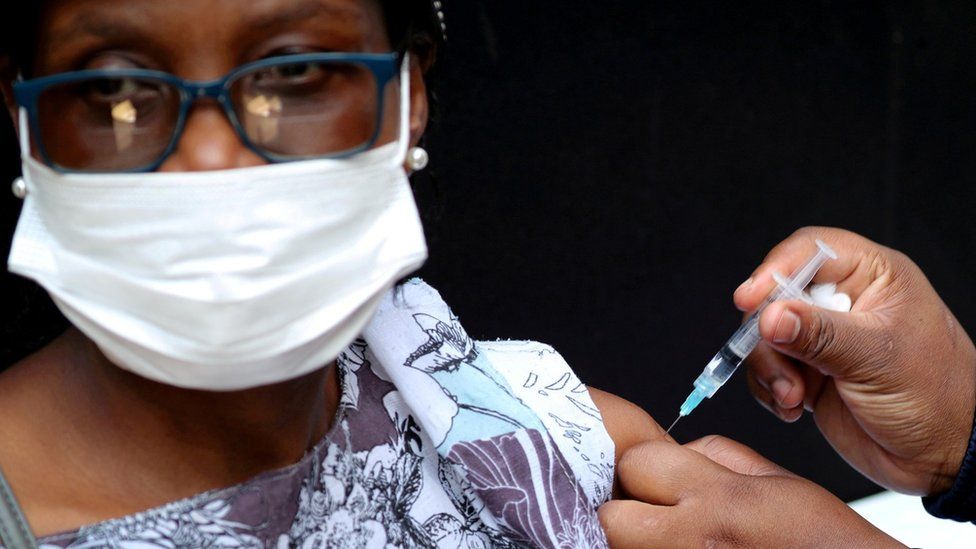It was first reported to the WHO from South Africa on 24 November, and has also been identified in Botswana, Belgium, Hong Kong and Israel.
A number of countries have now decided to ban or restrict travel to and from southern Africa.
Travellers from South Africa, Namibia, Zimbabwe, Botswana, Lesotho and Eswatini will not be able to enter the UK unless they are UK or Irish nationals, or UK residents.
US officials said flights from South Africa, Botswana, Zimbabwe, Namibia, Lesotho, Eswatini, Mozambique and Malawi would be blocked, mirroring earlier moves taken by the. It will come into effect on Monday.
It is not uncommon for a virus to change, or mutate, over time. A variant becomes a variant of concern when that mutation might affect things like transmissibility, virulence or the effectiveness of vaccines.
On Friday, the WHO said the number of cases of this variant, initially named B.1.1.529, appeared to be increasing in almost all of South Africa’s provinces.
“This variant has a large number of mutations, some of which are concerning,” the UN public health body said in a statement.
It said “the first known confirmed B.1.1.529 infection was from a specimen collected on 9 November”.
The WHO said it would take a few weeks to understand the impact of the new variant, as scientists worked to determine how transmissible it was.
A top UK health official warned that vaccines would “almost certainly” be less effective against the new variant.
But Professor James Naismith, a structural biologist from the University of Oxford, added: “It is bad news but it’s not doomsday.”
He said mutations in the variant suggested it may spread more quickly – but transmissibility “is not just as simple as ‘this amino acid does this'” and was determined by how mutations worked together.
If the variant were to spread more quickly, it would inevitably reach the UK, Prof Naismith said.
Meanwhile, US infectious disease chief Dr Anthony Fauci said that while the reports on the new variant threw up a “red flag”, it was possible that vaccines might still work to prevent serious illness. (Courtesy BBC)



Post a Comment